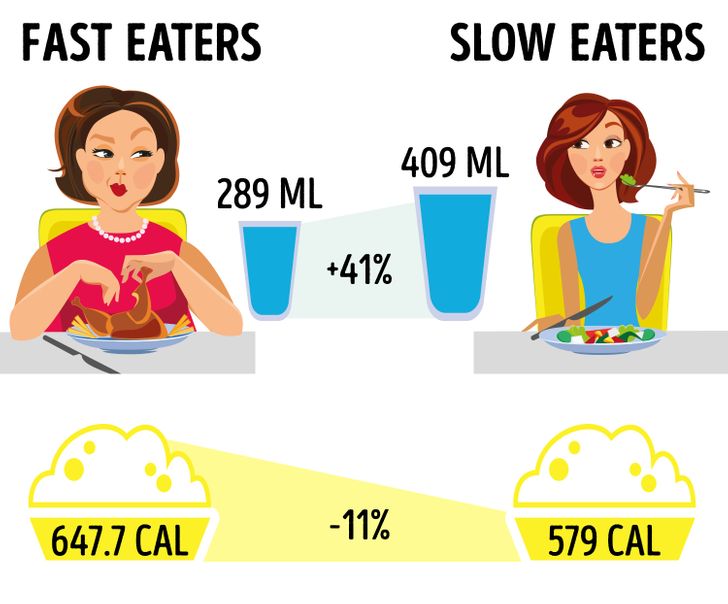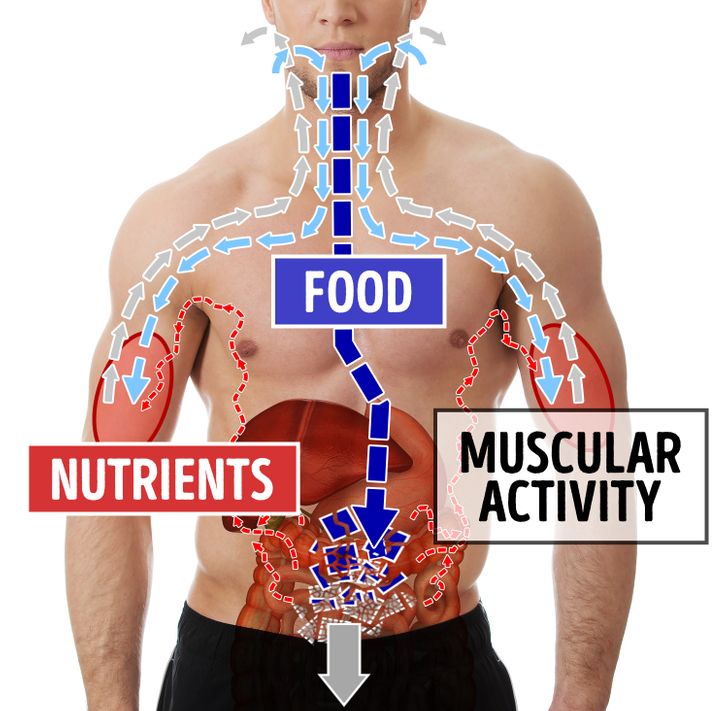A study published in the peer-reviewed journal American Psychologist found that short-term dieting did not actually lead to improvements in weight and health for most people. Additionally, it has been found in studies that dieting among healthy people, if done to stay healthy, can actually be harmful.
We recommend lifestyle changes, including changes to your eating habits, as a way to stay healthy and strong.
How to Maintain a Healthy Eating Lifestyle
8. Eat Slowly And Chew Well

One study found that fast eaters also gain weight faster than slow eaters. Eating slowly and chewing well will make you feel full, even when you’ve eaten less.
To get into the habit of eating slowly, you can start by counting how many times you chew each bite and gradually increase the count if you think you are not chewing enough.
7. Drink Water Regularly

Drinking water is essential to be healthy. Drinking water before meals can also help you lose weight, making you feel full and you will not consume excess calories.
A study found that people who drank half a liter of water 30 minutes before a meal ate less than those who didn’t.
The 12-week study found that test participants, who drank water before meals, lost 44% more weight compared to those who did not.
6. Serve Unhealthy Food On Red Plates

This may seem strange, but one experiment found that people drank less from red-colored and ate less from red plates compared to when they received the same from blue cups and plates.
One possible reason for this may be that we perceive the color red as a subtle stop signal.
5. Avoid Sugary Drinks

Added sugar is the biggest culprit in a variety of health problems, from diabetes and obesity to heart disease. Drinking just one can of soda, which contains about 52 g of sugar, will cause you to exceed the recommended daily limit for added sugar of 37.5 grams for men and 25 grams for women.
Instead, drink healthy beverages like green tea, coffee, or fresh-squeezed fruit juice.
4. Eat Without Distractions

Paying attention to eating without being distracted by watching TV or playing games will make you eat less and consume fewer calories.
You will also be more careful about eating healthy foods if you are not distracted by your surroundings. A review of 24 studies found that people who were distracted at mealtime ate about 10% more in that session.
3. Eat 2 Eggs A Day
A study published in the International Journal of Obesity found that if you combine a low-calorie weight loss diet with eggs for breakfast, you can increase your chances of losing weight compared to if you had a bagel for breakfast.
This is because the high protein content of eggs prevents you from feeling hungry for a long period of time.
2. Eat Breakfast Every Day

Due to the morning rush, sometimes we can skip breakfast or not eat enough. This practice is detrimental to our overall health.
Eating breakfast not only gives you plenty of energy to start your day, but it also reduces your chances of developing diabetes, gaining weight, and developing heart disease.
Studies have shown that breakfast helps you lose weight. In fact, more than 75% of people who have lost more than 28 pounds eat breakfast every day.
1. Eat More Than 3 Times A Day
Instead of eating 3 large meals a day, it is healthier to eat 6 smaller meals. Meal splitting shortens the interval between the traditional meal format of breakfast, lunch, and dinner.
It is a proven fact now that the longer you wait to eat, the greater the chances of overeating. According to nutritionist Amy Jamieson-Petonic of Cleveland, “After about 3 hours without eating, your blood sugar begins to drop.
And after 4 hours, your body has already digested everything you sent before. After crossing the 5-hour mark, your blood sugar begins to plummet and you grab whatever you can to refuel.”
Share with us your opinion about what you prefer: dieting or making small changes in your eating habits.









Leave a Reply